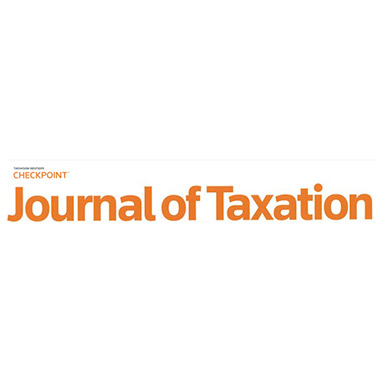Dealing with the Internal Revenue Service (IRS) can be a challenging task, especially when it comes to offshore accounts and tax violations. Such violations can lead to substantial penalties, which can be a cause of anxiety and stress for taxpayers.
However, there are mechanisms that can help taxpayers avoid or reduce these penalties. Delinquency procedures are designed for taxpayers who have a valid reason for late filing or late payment of their taxes. In these procedures, taxpayers can request relief from penalties by demonstrating that they had a reasonable cause for their noncompliance. Our team is here to help you understand your obligations, evaluate which options are available to you, and craft your reasonable cause argument.
Call McCormick Tax Law at (215) 630-0861 to get a free case review with our attorneys for reasonable cause and delinquency procedures.
Delinquency Procedures for IRS Tax Violations
The Internal Revenue Service (IRS) has established procedures to handle tax violations involving delinquency, which refers to the failure to file a required return or pay a tax debt on time. These procedures play a crucial role in maintaining tax compliance and ensuring that taxpayers fulfill their tax obligations. If you believe you made a mistake, even an honest one, our attorneys for delinquency procedures can help you sort it out. While these procedures can be intimidating, understanding them is the first step toward resolving your tax violations.
Understanding Delinquency and its Consequences
Delinquency is a term that refers to the failure of an individual or entity to meet a certain obligation or deadline. In the context of the IRS, delinquency usually involves failure to file a tax return by the designated deadline or neglecting to pay owed taxes. The implications of delinquency can be quite serious and can result in several negative consequences, including hefty penalties, interest on unpaid taxes, and potential criminal prosecution.
When a taxpayer fails to file a tax return on time, the IRS imposes a failure-to-file penalty, which is typically calculated as a percentage of the unpaid taxes for each month or part of a month that the tax return is late. This penalty starts accruing the day after the tax-filing due date and will continue to accumulate until the return is filed or until it reaches a maximum of 25% of the unpaid taxes.
Additionally, if a taxpayer fails to pay the amount of taxes owed by the designated deadline, the IRS will impose a failure-to-pay penalty, which is calculated as a percentage of the unpaid taxes for each month or part of a month that the payment is late. This penalty can also continue to accrue until the taxes are paid in full.
These penalties and interest charges can quickly add up, making it even more difficult to pay off the original tax debt. Therefore, it is crucial to file tax returns on time and pay any taxes owed by the designated deadline to avoid incurring these additional charges.
Correcting Delinquent Status
To rectify delinquent status, your primary step should be to file any unfiled tax returns and pay any unpaid tax debts as soon as possible. The IRS offers several payment options, including short-term payment plans (paying in 120 days or less) and long-term payment plans (installment agreements) if you owe $50,000 or less.
However, the interest and penalties will accrue on any unpaid tax debt, so it is best to pay as much as you can to minimize these charges. If you cannot pay the full amount immediately, you might request an installment agreement, which allows you to pay your debt over time in monthly installments.
In certain cases, the IRS might abate or remove the penalties for failure to file or pay if you can show reasonable cause for not meeting your tax obligations. Reasonable cause might include events beyond your control, such as natural disasters or serious illness.
Understanding Reasonable Cause in IRS Delinquency Procedures
When it comes to dealing with the IRS, understanding the concept of reasonable cause can be pivotal. This term, often used in the context of delinquency procedures, refers to a valid reason that justifies the failure to comply with tax obligations on time. By adequately establishing reasonable cause, you can potentially avoid these penalties and mitigate the financial impact of your delinquency.
Defining Reasonable Cause
Reasonable cause is a legal defense that can be used to avoid penalties imposed by the IRS for failure to file or pay taxes on time. This defense is applicable when the taxpayer can demonstrate that they exercised ordinary care and prudence in fulfilling their tax obligations but were nonetheless unable to comply because of some sound reason. The IRS considers the specific facts and circumstances of each case to determine whether reasonable cause exists.
There are various circumstances that can be considered reasonable cause, such as a serious illness or unavoidable absence that prevented the taxpayer from fulfilling their tax obligations. Other examples include a fire or other casualty that caused damage to the taxpayer’s property or records, inability to obtain necessary records, or reliance on the erroneous advice of an IRS officer or a tax professional.
Keep in mind, though, that the IRS evaluates each case on an individual basis, and the burden of proof lies with the taxpayer to demonstrate reasonable cause. Thus, it is crucial to keep accurate records and documentation to support the claim of reasonable cause.
Implications of Reasonable Cause
Successfully establishing reasonable cause can have significant implications for taxpayers facing delinquency penalties. If the IRS determines that there was reasonable cause for the taxpayer’s failure to file or pay, it might abate or remove the penalty associated with the delinquency.
However, it is important to note that the existence of reasonable cause does not absolve taxpayers of their obligation to pay the tax owed. It merely removes the additional penalties that would have been imposed because of the delinquency.
Making a Reasonable Cause Argument
Building a successful reasonable cause argument requires a detailed understanding of the IRS guidelines and a thorough examination of the facts and circumstances surrounding the delinquency. It is essential to gather all relevant evidence, such as medical records in case of serious illness, documents showing that you sought professional tax advice or proof of events like a natural disaster that prevented you from complying with your tax obligations.
Our team can provide invaluable assistance in this process. They can guide you through the intricacies of IRS guidelines, help you gather necessary evidence, and craft a compelling narrative that effectively presents your case.
Our Attorneys for Reasonable Cause and Delinquency Procedures Can Help Your Case
For a free case evaluation, contact our attorneys for reasonable cause and delinquency procedures at McCormick Tax Law by calling (215) 630-0861.










